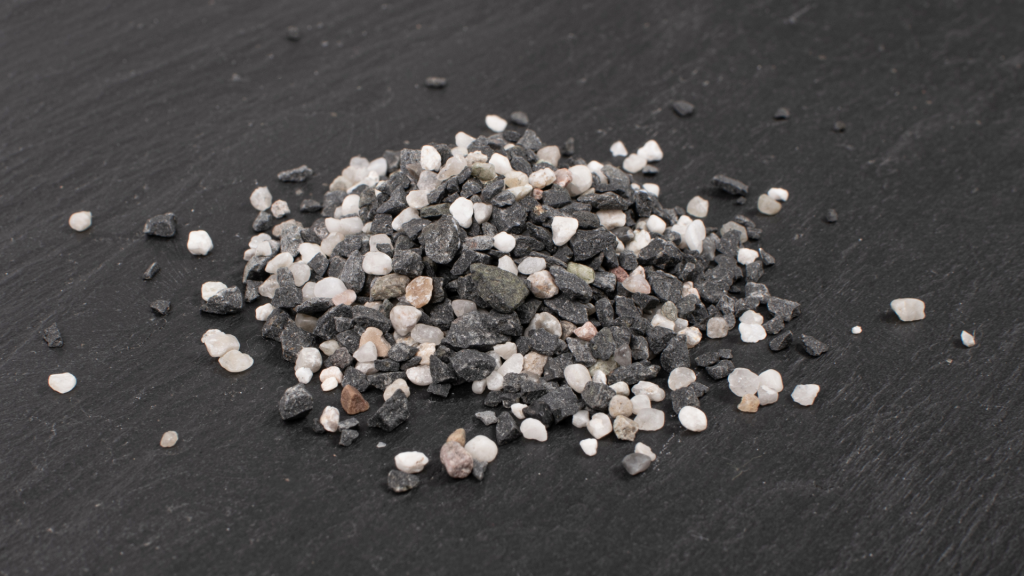Why are there different abrasive types of sandpaper and which is best for what I’m doing?

Put simply, different abrasive types of sandpapers give you different results. With years of experience, we find different grain types work better for different materials and will give better results depending on what stage of the project you are on. Some types of sandpaper are even able to speed up the sanding process!
In this blog, we’ll look at the different abrasive types of sandpaper, to help you choose the best solution for your next project.
What are the different types of sandpaper?
Unlike the name ‘sandpaper’ suggests, it is not actually sand that is used, but other abrasive materials. The most frequently used natural minerals are emery and garnet, while the most common man-made synthetic types of abrasives are aluminium oxide, silicon carbide and ceramic alumina.
These different types of abrasives vary in key aspects, including their durability, coarseness, recommended applications, available grit sizes, the level of friction required, plus the formats they are available on, such as disks, sheets, or belts. So, choosing the right abrasive type will really make a difference on your next project’s results.
Aluminium oxide
Aluminium oxide is the most versatile synthetic abrasive grain. It is a chemical compound made by fusing aluminium and oxygen. It is sorted by grit size to create sandpapers for various applications.
It is incredibly resistant to scratching, ranking 9 on the Mohs Hardness Scale of 1-10, which starts with Talc as the least resistant and places Diamond at 10.
Aluminium oxide-based coated abrasives can be used in belt sanding, power sanding or for hand sanding applications, and are available on a range of backing materials with both open and closed coatings for a wide variety of applications. Our range offers this grit type on our Naxobelts, multiple disc types plus the foam backed rolls.
Silicon carbide
Silicon Carbide is extremely popular as it is the hardest common abrasive grain (other than diamond), measuring 9.5 on the Mohs Scale of Hardness. It is a semiconductor containing silicon and carbon and is produced through carbothermal reduction.
It stands out as the only grain that can be used on glass, stone and marble and is frequently used in wet sanding applications, such as polishing stone and marble, as well as automotive polishing applications. It is particularly effective on hard metals and works well on MDF and cork also.
Although silicon carbide tends to wear quicker than aluminium oxide, it is sharper and still a long-lasting product. It is ideal for uses on harder materials, rougher surfaces and for polishing.
In coarser grits, this abrasive is good for removing rust, deburring metal and glass, plus cutting through and removing old finish on wooden flooring. Silicon carbide is available on belts, disks, sheets, sponges for hand sanding and power sanding.
Typically, people will switch from rough sanding raw wood with aluminium oxide to using silicon carbide in the finishing stages of the same project. Which makes the Sia 7240 Siacarat discs perfect across a range of applications, this compliments the sheets, rolls and handpads which also contain this grit type.
Ceramic alumina
Ceramic alumina, known for its durability, is a synthetic grain produced through an aqueous dispersion of fine aluminium oxide powder. Although when compared to aluminium oxide it can be more expensive, it lasts longer and provides a cooler sanding experience.
This grain works best on metal, especially stainless steel, and requires a hard surface and pressure to activate its friability. Although it can be used on wood, it will be very aggressive and can result in a poor uneven scratched finish.
Redwood recommends:
At Redwood we have an extensive range of abrasive sandpapers, with aluminium oxide, silicon carbide and ceramic particles all being extremely popular.
Our abrasives suit a wide range of applications, and we are always happy to help you discover the best abrasive type for your next project.
For a reliable abrasive solution, contact our expert team today on 023 9223 3310 or email sales@redwood-uk.com
